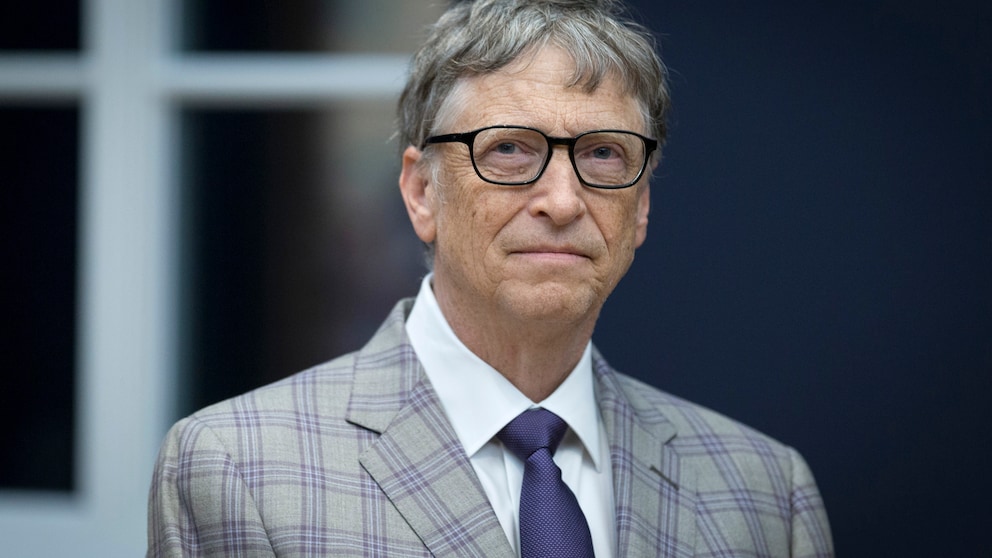September 17, 2024, 8:31 am | Read time: 4 minutes
Facebook, price comparison portals, and intelligent advertising are all technologies that are now part of our everyday lives. In 1999, most people would have thought this was all science fiction, but Microsoft founder Bill Gates already saw it coming.
In 1999, Bill Gates, the founder of Microsoft, published his book “Business @ the Speed of Thought.” The book gave readers various tips on company management and the further development of products. Bill Gates also made some predictions about what the technological world could look like in the future.
As it turns out, 20 years later, Gates was astonishingly right about almost everything. In his blog, which has since been taken offline, economics student Markus Kirjonen presented some quotes from Gates’ book that have come true in part or in full. TECHBOOK has summarized the six most fascinating ones for you.
Overview
1. Social media
One of Bill Gates’ predictions in 1999 was: “Private websites will emerge that will allow your friends and family to chat with each other and plan events.” Four years later, the three major projects, Myspace, LinkedIn, and WordPress, were launched.
After these platforms quickly amassed hundreds of thousands of users, Facebook opened its doors to students in 2004. In the years that followed, the service developed into the largest social media platform of all time, with billions of users. Many others followed, such as YouTube, Instagram, Tumblr and Snapchat.
2. Smartphones
“People will carry around small devices that will allow them to stay in constant contact with each other and conduct their affairs electronically from anywhere. They will be able to follow the news, see flights they have booked, get information from the financial markets, and do everything else on these devices,” is another of Bill Gates’ predictions.
Smartphones replaced traditional cell phones towards the end of the 2000s. The significant difference, besides the high-resolution touchscreens, was the proprietary operating system. This enabled users to install a multitude of applications. Nowadays, there is an app for almost every need.
3. Price comparison portals
“Automated price comparison services will be developed that will allow users to monitor prices from many sites, making it easy to find the cheapest product across all industries,” Bill Gates predicted years ago. In the same year as his prediction, the company Check24 launched one of the first comparison portals in Germany. The portal was for car insurance at that time.
Today, there are numerous such portals in Germany. Most of them are considered “white labels,” which means that the operator receives the price data from the provider personally. In addition to comparing prices, many portals also offer users the opportunity to create profiles for better searches, obtain other buyers’ opinions, and include additional facts such as delivery time and sustainability in the purchase decision.
4. Personalized advertising
“The devices will have intelligent advertising. They will know your buying preferences and serve ads tailored to your preferences,” predicted Bill Gates. While companies could only place their ads on newspaper websites in the late 90s, GoTo.com was the first operator to start selling targeted ad space on various websites in 1997.
With the increase in computer power and the ability to monitor and direct traffic, companies have been able to develop many different targeting methods to get specific ads to the right customer. This involves creating accurate profiles of customers based on their search habits and social media activity for optimal targeting.
5. Online job placement
In 1999, Gates wrote: “Similarly, job seekers may be able to find jobs online by indicating their interests, needs and special skills.” The company LinkedIn was founded in 2003. Today, it boasts 500 million users and stands as the world’s largest professional network.
Users upload their personalized resumes and profiles to find suitable job opportunities. Employers can proactively contact them. The service is available globally, except in China and Russia.

5 things Jeff Bezos predicted back in 1999

Why a Manufacturer’s TVs Are Designed to Recognize Your Emotions

What is the Difference Between WLAN and WiFi?
6. Smart Home
“Constant video surveillance of your home will become commonplace and will inform you if someone visits you in your absence,” Bill Gates predicted back in 1999. He also said that “personal supporters will be developed that connect and synchronize all your devices, whether they are at home or at work so that data can be exchanged between them.”
According to Gates, it is also conceivable for a user to include their home device when shopping in the city. An example of this is preparing a meal by compiling a shopping list and preparing all the kitchen appliances for cooking. With these statements, Gates is describing the phenomenon of the smart home without realizing it.
For instance, the company Dropcam offers continuous video surveillance. Systems like Google Now and Nest enable appliances to connect and communicate with each other.

